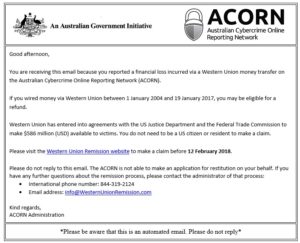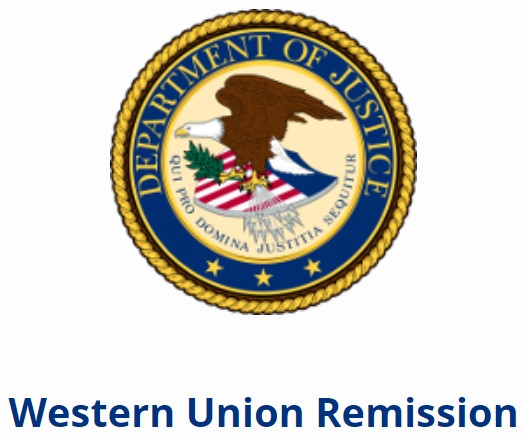Quick update…
Its Official!
I have received notification from both Stay Smart Online and ACORN that its now possible to claim for losses because of scams from Western Union, but claims MUST be in by 12 FEBRUARY 2018.

Western Union has entered into agreements with the US Justice Department and the Federal Trade Commission to make $586 million (USD) available to victims. You do not need to be a US citizen or resident to make a claim.
You will need to provide details and evidence of each transaction to the US Department of Justice (DoJ), and they say it may take some time to process, but at least we will be on the list.
The Department of Justice say, in their FAQs:
The amount you get will probably be a percentage of the amount you lost minus any refund you have already gotten.
Your payment will be based only on the amount of the money transfer. You cannot recover collateral expenses such as Western Union fees, incidental losses, or transfers sent through other companies.
It will still take some time—potentially a year or more—to process and verify petitions, and determine who is eligible to get a payment.
To access the remission forms, and access other information about this, go here. Good Luck. I will certainly be doing this.
PS: getting a notification from ACORN about this shows that it is useful to make reports to ACORN.





 Whilst the cited cases are based around sending money to China for people or drug trafficking, and aiding and abetting offshore gambling, the terms of the overall judgement, taken jointly by a large number of US agencies, are much more general than just this. The problems with Western Union, according to them included:
Whilst the cited cases are based around sending money to China for people or drug trafficking, and aiding and abetting offshore gambling, the terms of the overall judgement, taken jointly by a large number of US agencies, are much more general than just this. The problems with Western Union, according to them included: